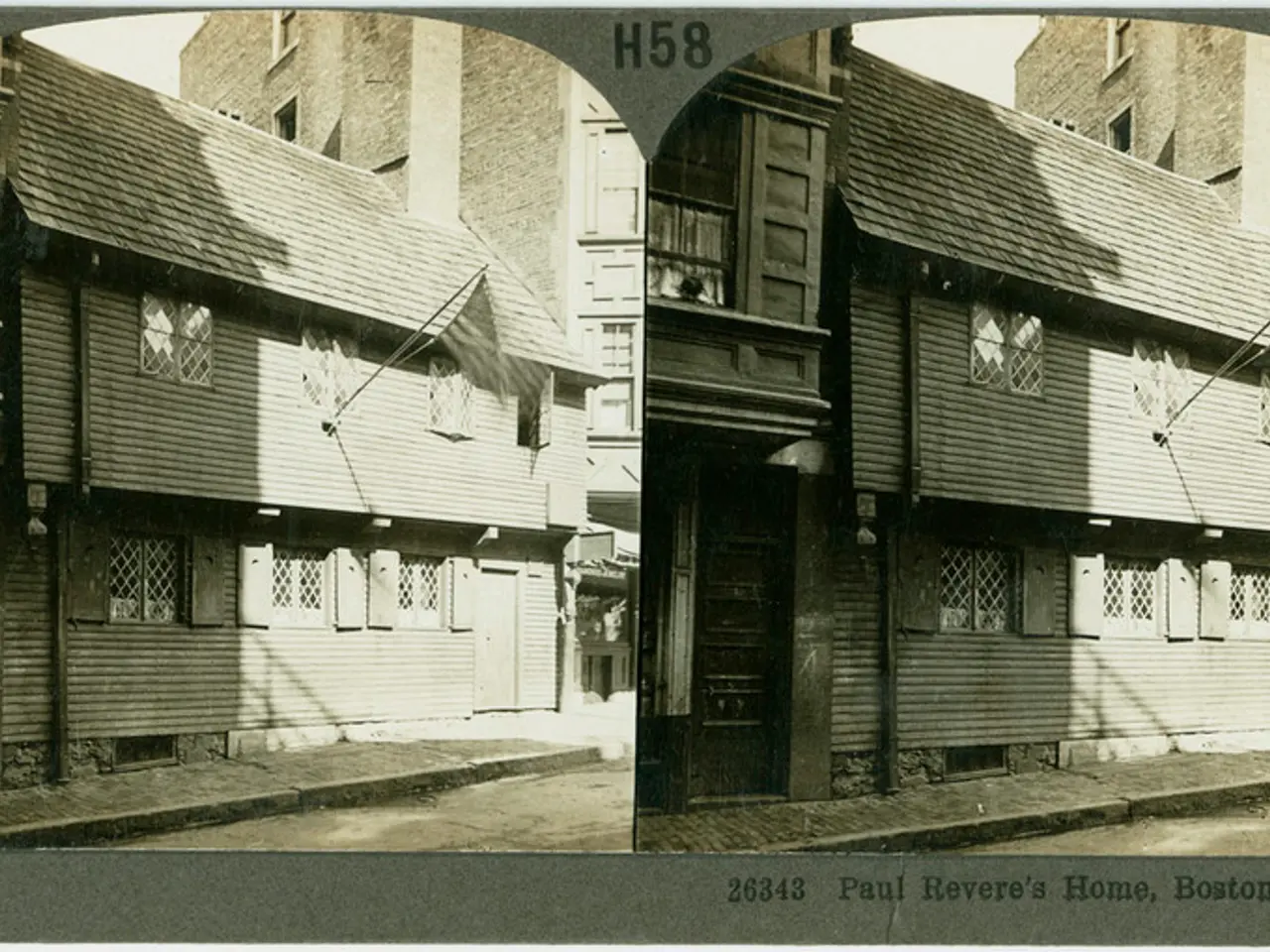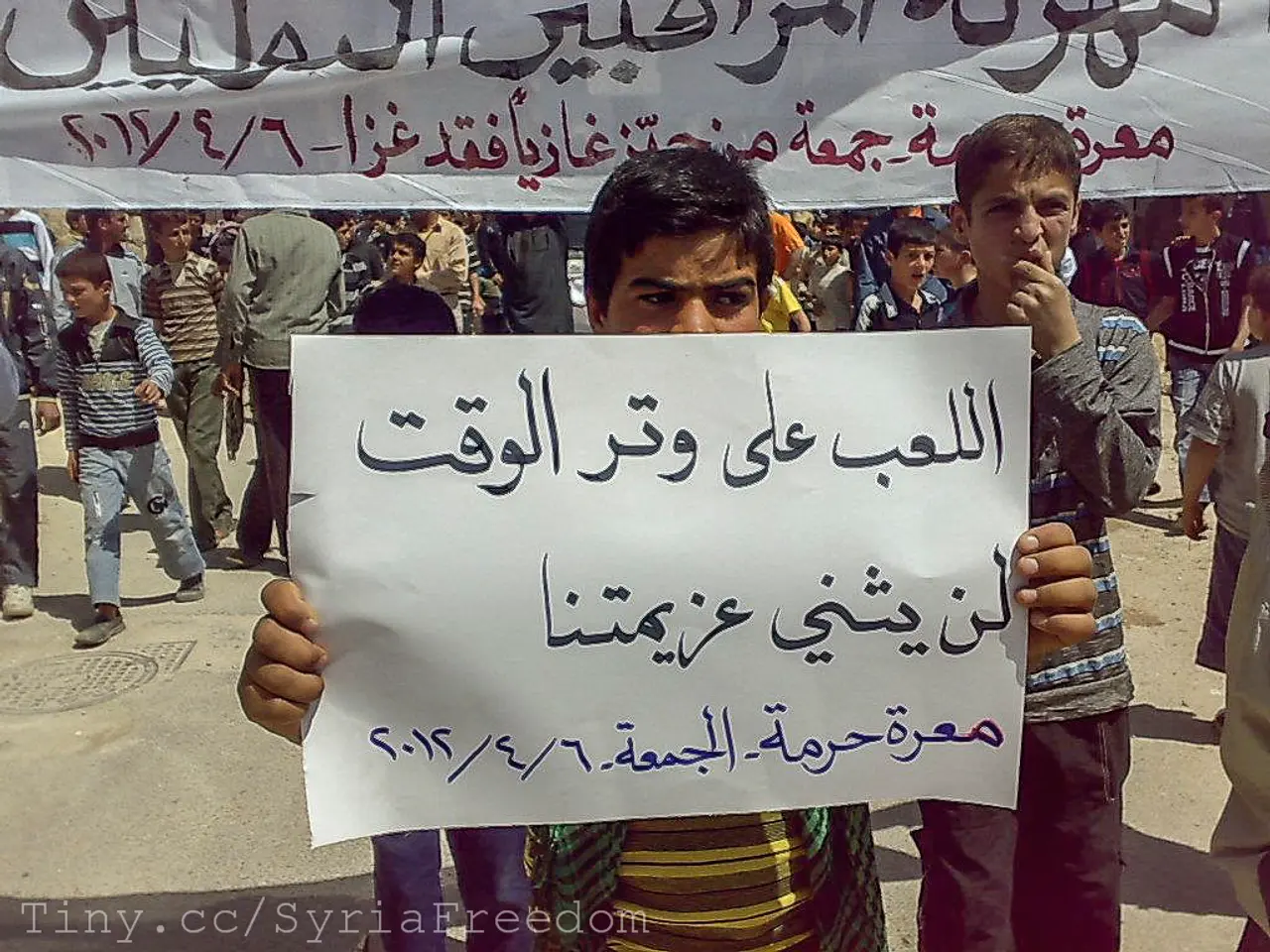Residents of Paris are expressing unhappiness regarding the absence of air conditioning in their apartments
In the heart of Paris, the city of love, residents are grappling with the increasing heatwaves exacerbated by global warming. As temperatures soar, some Parisians, like Martine Bontemps, find the heat suffocating but choose to make do with a ceiling fan instead of installing air conditioning [1]. However, Anne Ruas, a researcher, predicts that air conditioning in Paris's private apartments will become more widespread in the coming years [2].
This trend concerns Paris climate authorities, who see it as a form of "catastrophic mis-adaptation." They advocate reserving air conditioning use as a last resort, promoting other, more efficient and less harmful options [1]. One such solution is improving building insulation and adapting roofs, such as modifying the zinc-covered roofs common in Paris [1]. However, heritage protection constraints often block such renovations, complicating efforts [1].
Paris is expanding its Fraîcheur de Paris network, one of Europe’s largest district cooling systems. This system leverages cool water from the Seine river and geothermal wells to provide low-carbon cooling to public buildings and commercial areas, achieving major efficiency gains [3]. The city is also developing more sustainable cooling technologies, such as evaporative cooling systems in warehouses on the outskirts of Paris [2].
Despite these efforts, air conditioning is in full development in Paris, according to a recent study by the APUR urban planning agency [2]. Ruben Arnold, a father of young children and the boss of a startup company, installed air conditioning despite its climate cost [5]. Marion Lafuste, a resident of northeast Paris, experienced a temperature of 41C (106F) during a heatwave and found relief scant with ice packs and closed shutters [4]. The pressure to upgrade to air conditioning comes in part from foreign visitors who rent private apartments [6].
However, hard numbers on the increase in air conditioning are difficult to come by due to many Paris dwellers using portable units that do not appear in building statistics [6]. Instead of guilt-tripping people, Ruas suggests thinking of solutions and coming up with the least harmful air conditioning systems possible [6]. Dan Lert, in charge of the city's climate plan, states that among solutions to combat the need for air conditioning is the renovation of buildings, including changing many zinc-covered roofs [1].
In conclusion, Paris’s approach to rising cooling demand entails promoting climate-friendly cooling infrastructure, building adaptation, responsible air conditioning use, and developing alternative cooling technologies to decrease the escalating energy consumption and greenhouse gas emissions linked to air conditioning [1][2][3][4]. This multi-faceted strategy addresses both immediate heat relief needs and long-term climate goals. Despite worries about global warming, some Parisians, like Lafuste, no longer judge people who have air conditioning.
- Given the rising heatwaves and global warming, Paris's environmental science researchers are advocating for energy-efficient solutions, such as improving building insulation and modifying roofs, as alternatives to air conditioning to reduce greenhouse gas emissions.
- Despite the expansion of France's district cooling systems that utilize cool water from the Seine river and geothermal wells, and the development of sustainable cooling technologies, the use of air conditioning in private apartments in Paris is predicted to become widespread, causing concern for local climate authorities.
- As Paris faces the challenges of climate change, its climate action plan focuses on promoting climate-friendly infrastructure, responsible air conditioning use, and the development of alternative cooling technologies, as well as addressing the need for immediate heat relief without compromising long-term climate goals.








